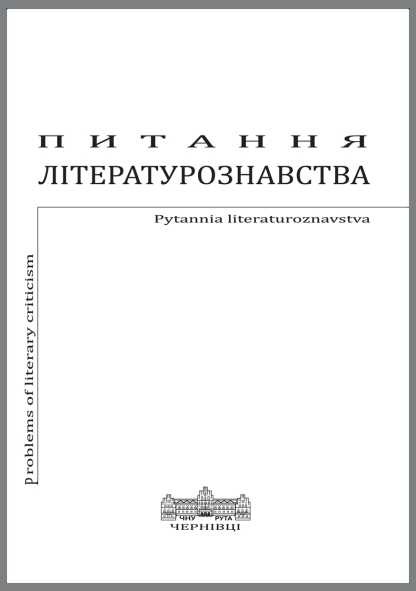Бібілійні Мотиви В Творчості Українських Драматургів Після 2000-Го
Biblical Motivs in Plays of Ukrainian Drama Writers after 2000
Author(s): Mykola Leonidovich LipisivitskySubject(s): Ukrainian Literature, Biblical studies, Hermeneutics, Drama, Sociology of Religion
Published by: Чернівецький національний університет імені Юрія Федьковича
Keywords: temporary Ukrainian drama; Gospel; Biblical apocrypha; genre; baroque; postmodernism; Eduard Bogush; Olexandr Chyrkov;
Summary/Abstract: Only in the 2000s, after the decades of Independence, Ukrainian drama managed to declare its existence as contemporary literature original phenomena in the first anthologies and monographs. Despite the striving for uniqueness in Ukrainian dramatic writings, the impact of atheistic Soviet culture provides its consequences. The outcome is mostly evident in the references of Ukrainian playwrights to the most profound places in the Bible. Non-canonical apocryphal works are considered to be the most popular among Ukrainian playwrights. (The Cursed, Chyrkov O. S.). Playwrights are also engaged in looking for logical explanations of unknown details concerning mysterious "the third force" placed amidst the good and the evil (Mark Fabius’ Mistake E. Bogush), partly due to the influence of Mikhail Bulgakov's novel The Master and Margaret. In both plays, there is an attempt to explain logically events of sacred significance through the introduction of profane factors when proposing arguments based on causal relationships. The plays deal with the ability to manipulate the opinion of the majority, question the trust in the “facts” transmitted by the tradition and suggest the need for an own interpretation of phenomena and events important for our culture without blind faith in the canonical explanation.
Journal: Питання літературознавства
- Issue Year: 2018
- Issue No: 97
- Page Range: 69-84
- Page Count: 16
- Language: Ukrainian

